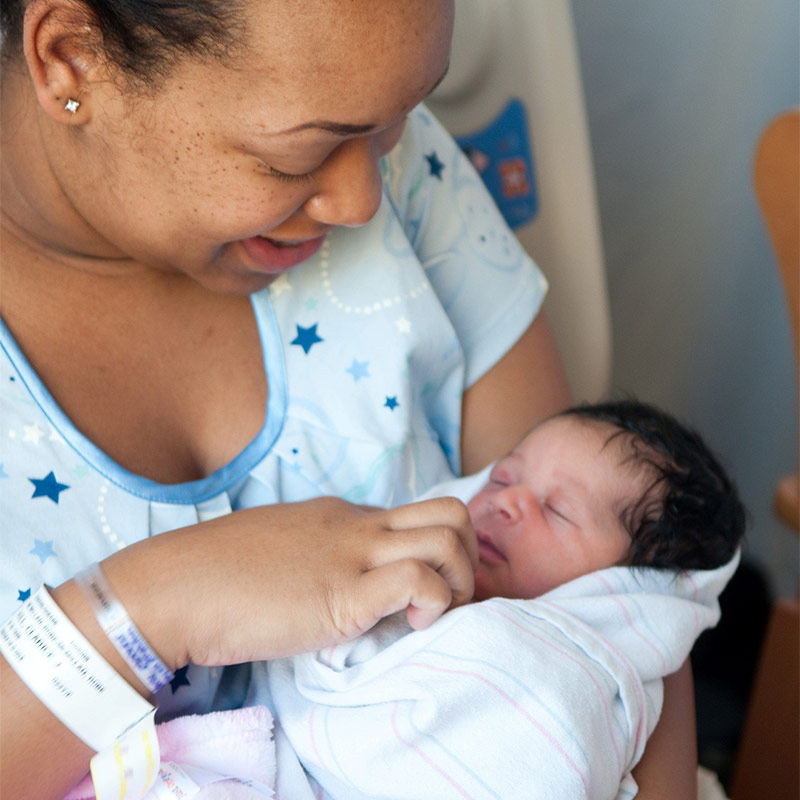All of the spacious postpartum rooms in the Mother/Baby Unit are private with large windows. The highly trained maternity nurses provide on-site education from breastfeeding to baby care, as well as support for feedings and diapering.
The Cherese Mari Laulhere BirthCare Center also provides postpartum baby care while new moms rest during their stay. New moms preparing to take home their first baby can seek assistance in the personally tailored education classes.
Educational Guides:
- A New Beginning - Your Personal Guide to Caring for Yourself & Your Baby
- Un nuevo comienzo - Su guía personal para su propio cuidado y el de su bebé
Newborn Screening
Newborn screening is the process of testing newborn babies for treatable hearing loss and metabolic disorders. All babies are tested because while most babies look healthy, some can have a rare health problem.
Tests performed on every newborn delivered at the BirthCare Center:
- Hearing
- Metabolic
- Endocrine
- Blood cell
- Critical congenital heart defects
Hearing
To help minimize communication deficits and improve hearing abilities, the state of California has implemented Early Hearing Detection and Intervention (EHDI) programs that can detect hearing loss in newborns. The BirthCare Center conducts two quick and painless hearing screenings before a baby is released from the hospital:
- The otoacoustic emissions (OAE) test records an infant’s inner ear’s response to sound.
- The auditory brainstem response (ABR) test is typically done on infants who do not pass the OAE. During this test, electrodes are placed on the infant’s head that measure the hearing nerve’s activity in response to sound.
Genetic Diseases
A blood test is used to test for any genetic diseases at birth. Before leaving the hospital, a nurse will take a few drops of blood from a baby’s heel for testing. The hospital sends the blood samples to a newborn screening lab and parents are notified of the test results and if necessary referred to a pediatric specialist.

